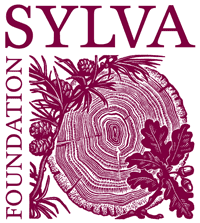Today the Sylva Foundation launches a set of new woodland management resources for teachers, Forest School leaders and other outdoor educators, through the myForest for Education website.
myForest for Education is a free online application that enables educators to produce simple maps and management plans for their outdoor education sites, and has been designed in partnership with the Forest School Association to support Forest School leaders. myForest currently has over 1500 registered education users. In response to recent user feedback, Sylva Foundation have produced a new step-by-step PDF help guide, a guide to ecological impact assessment, and a set of tutorial videos for using myForest for Education.
Watch the video
Explore the new help resources for use with myForest for Education
In a nationwide survey of 1,171 people led by the Sylva Foundation in 2019 [1] , tree health was identified as a key training need area by educators. Together with the Forestry Commission Plant Health Forestry Team, the Sylva Foundation have produced a set of pest and disease factsheets for four common broadleaved trees, directly addressing this need. The resources are designed for use in the field by Forest School leaders and other educators, alone or with older children (9+), helping to spot common tree pests and diseases and providing reporting and management advice. They are the first tree pest and disease resources in England designed specifically for educators.
Explore the new tree health resources
Download the leaf insect herbivore ID guide
Sylva Foundation have also produced a leaf insect herbivore identification guide, for use by educators in the field and to plan bug-related activities with children.
We hope you enjoy using the new resources on myForest for Education. These resources have been made possible with funding from the Ernest Cook Trust, and were developed in collaboration with Sylva Foundation intern Elsa Field, a DPhil student from Oxford University whose internship was funded through NERC.
[1] Hemery, G., Hurst, J., Petrokofsky, G., (2019).
Bringing children closer to nature: report of a survey on Forest School and outdoor learning in England. 23pp. www.sylva.org.uk/forestschools



















